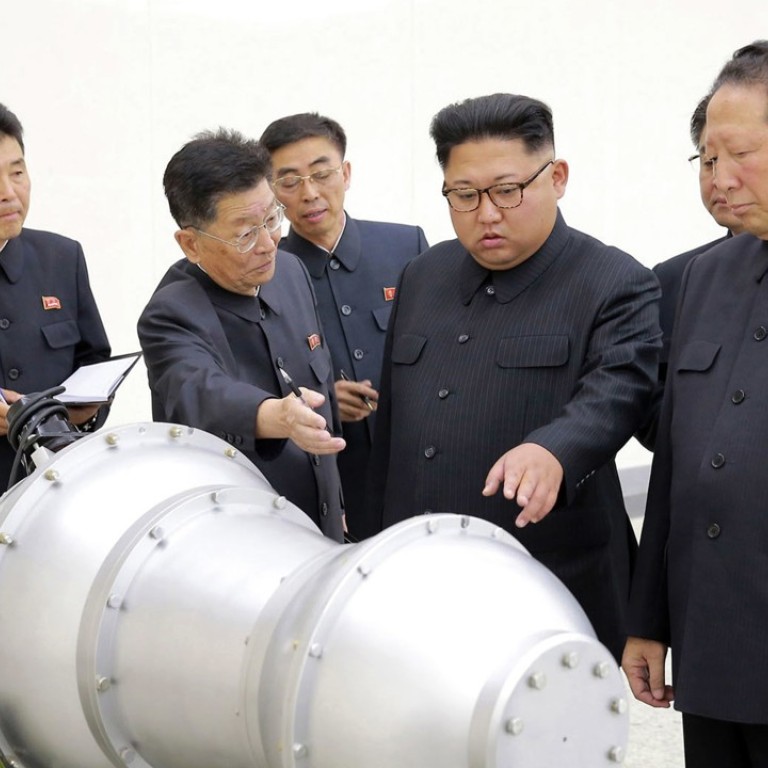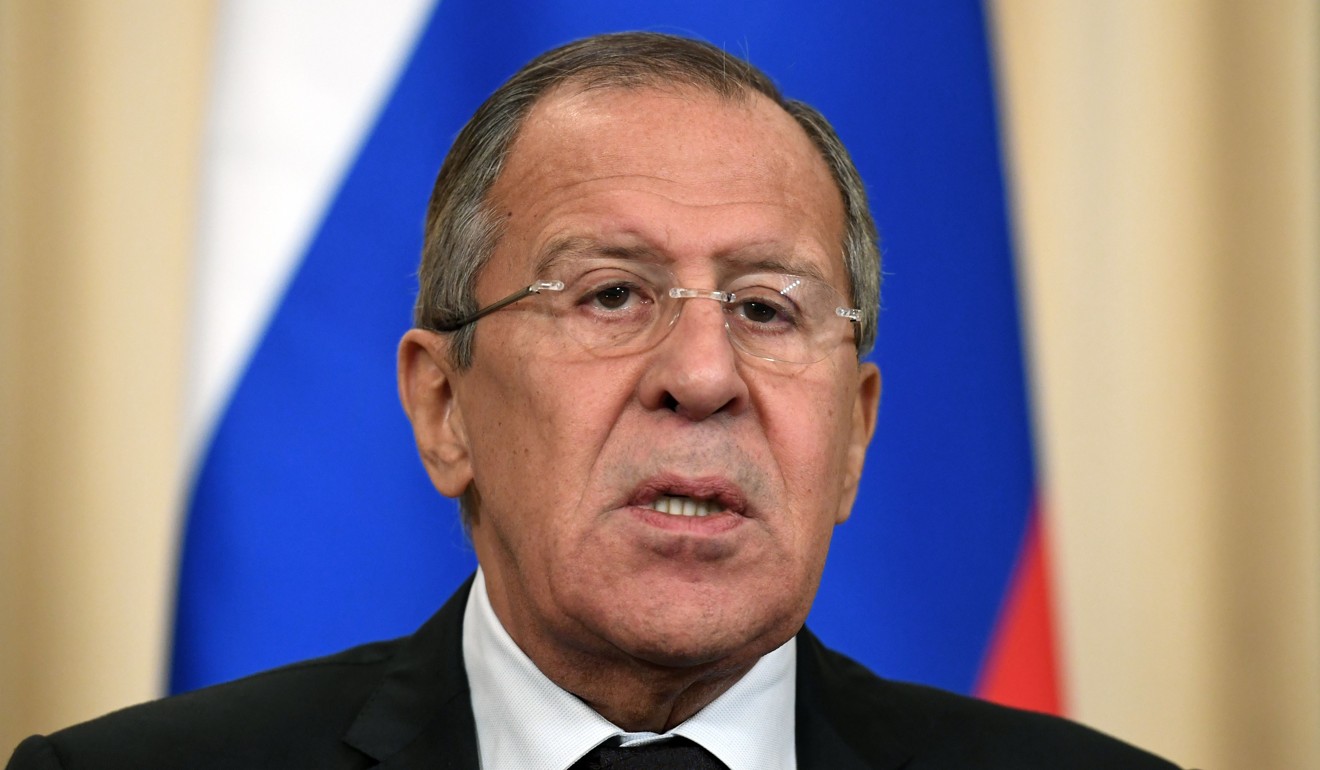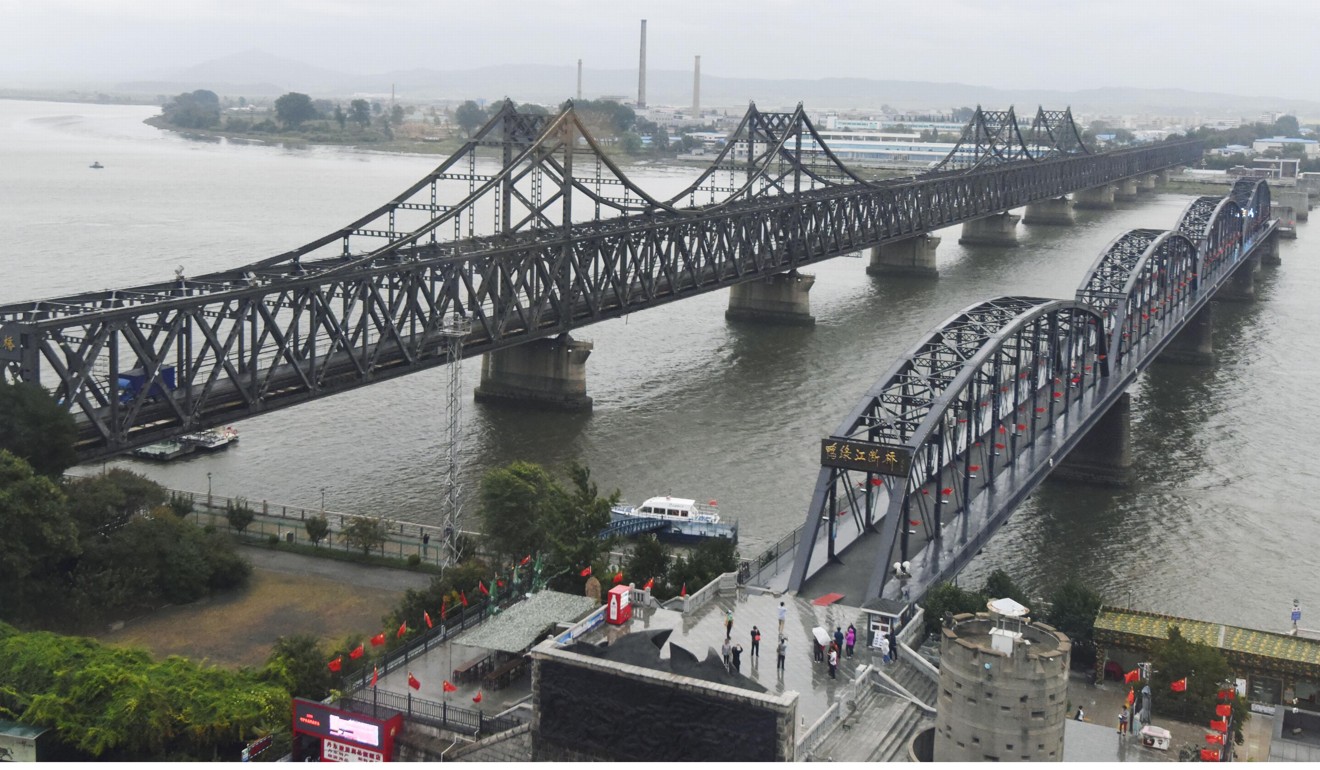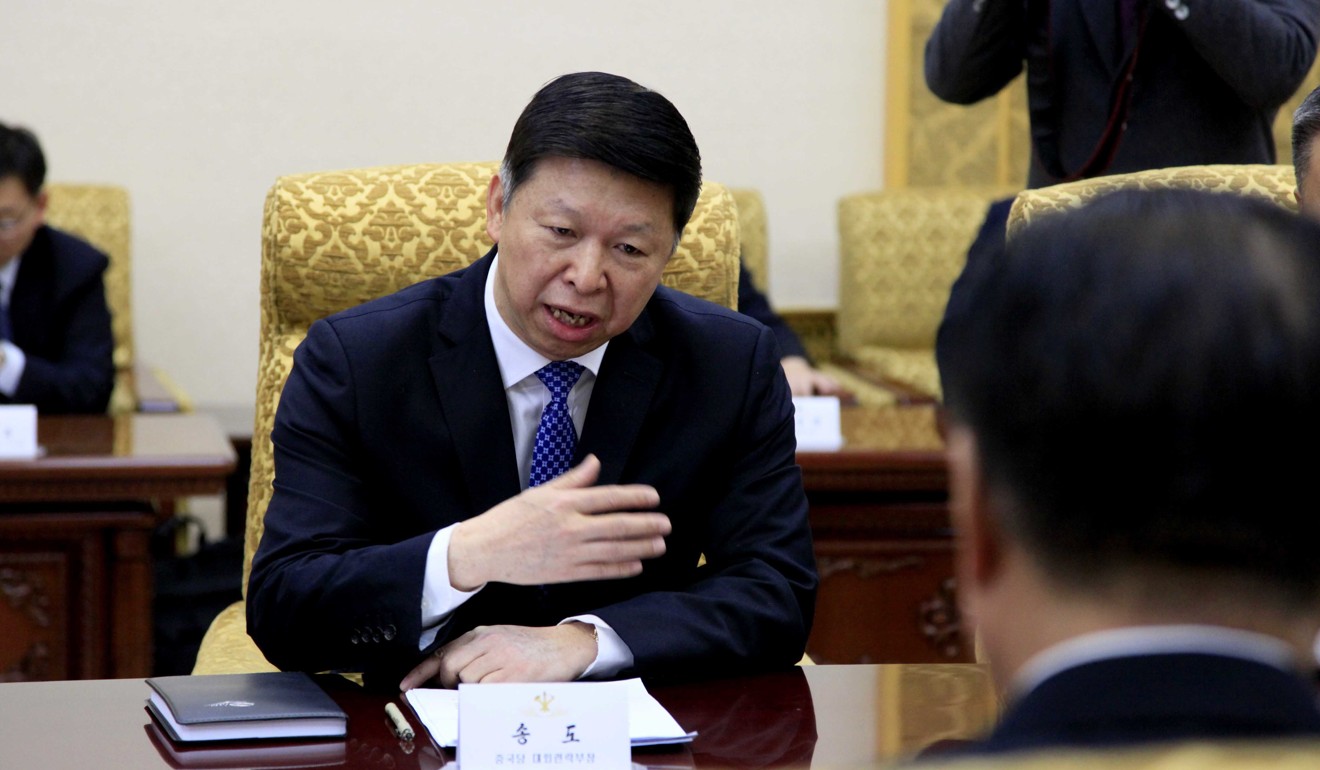
Could Russia replace China as power broker on North Korea?
Beijing welcomes Moscow’s offer to ‘support and promote’ direct talks between Pyongyang and Washington
China on Friday said it welcomed Russia’s offer to set up direct talks between the US and North Korea over the escalating nuclear crisis, despite the move being seen by some observers as a sign of Beijing’s waning influence over its wayward ally.
In efforts to act as a power broker, Russian Foreign Minister Sergey Lavrov said on Thursday that Pyongyang was seeking direct talks with Washington and that Moscow was ready to support and promote them.
“We know that North Korea wants, first of all, to speak with the United States about its security guarantees,” Lavrov said in a statement carried by the Ministry of Foreign Affairs, Russian news agency TASS reported. “We are ready to support it. We are ready to help promote such talks.”

At a press conference on Friday, China’s foreign ministry spokesperson Geng Shuang said that Beijing appreciated the offer.
“We welcome efforts by all sides, including Russia, to bring about dialogue for a peaceful resolution,” he said.
He went on to reiterate China’s position that the nuclear crisis could be resolved only by North Korea and the United States, as the parties in direct conflict, and that China had been working to bring the pair back to the negotiating table.
Compared to China, Russia traditionally has less economic leverage with Pyongyang and has over the past few years played a limited role in mediating in the nuclear crisis.

However, in a sign Moscow was seeking a larger role in the issue, Deputy Foreign Minister Igor Morgulov said on Tuesday that Russia had opened communication channels with North Korea and was ready to exert its influence on Pyongyang, according to a report by the state-owned RIA news agency.
Wu Xinbo, an international relations scholar at Shanghai’s Fudan University, said the deteriorating relations between Beijing and Pyongyang had created an opening for Moscow to increase its influence in the geopolitical stalemate.
“Both China and the US have now run out of options on North Korea,” Wu said. “As North Korea has drifted further away from China, it has provided an opportunity for Russia to draw closer to North Korea.”

Last month, China sent Song Tao, head of the International Liaison Department of the Central Committee of the Chinese Communist Party, on a rare visit to Pyongyang. But his failure to secure a meeting with leader Kim Jong-un was seen by observers as a sign China’s influence over its reclusive neighbour was on the slide.
Meanwhile, although Russia has backed the latest United Nations sanctions against North Korea, it also has been quietly boosting its economic support for Pyongyang as one of the largest donors – along with China – of food aid to the country.
Bilateral trade between Russia and North Korea in the first quarter of 2017 more than doubled from the same period of last year to US$31.4 million, due mainly to what Moscow said was an increase in exports of oil products.
Zhang Liangui, an expert on North Korean issues at the Communist Party’s Central Party School, said Russia’s increasing involvement with North Korea was “noteworthy”.
“Russia is clearly shielding North Korea with its sympathetic stance towards [its] nuclear programmes,” he said.
While both China and Russia favoured a “freeze for freeze” plan with North Korea – meaning Pyongyang halts its nuclear and missile programmes in exchange for Washington and Seoul suspending their military exercises – Moscow had not emphasised the goal of moving towards denuclearisation, Zhang said.
Meanwhile, China has dispatched its foreign affairs vice-minister Zheng Zeguang to the United States on a “firefighting” mission, in the hope of defusing tensions over North Korea and trade.
Zheng, who has been touted to take over as Chinese ambassador to the US, on Thursday met Deputy Secretary of State John Sullivan and Matt Pottinger, head of Asian affairs at the National Security Council.

